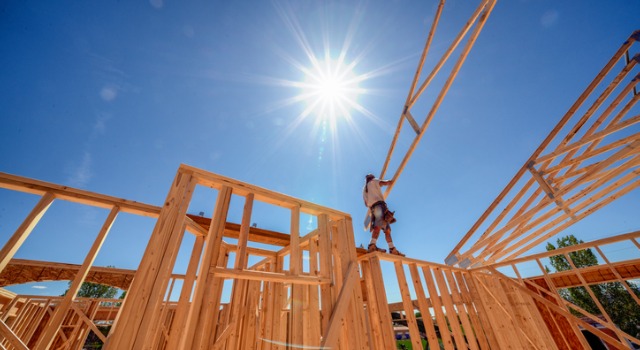
Are you in the market to buy a home? If so, then you may be trying to decide between new construction or purchasing an existing home. With your home being such a huge purchase, you need to be sure you make the best choice for your family.
Here are some things you should consider when trying to determine whether new construction or an existing home is better for your family:
Your Budget
The biggest deciding factor for many individuals is their budget. Existing homes often come with a cheaper initial price tag; however, there may also be some incentives for purchasing a new construction home that can make them more affordable in the long run.
Whether or Not You Want to Make Repairs
Existing homes usually have repairs that need to be made. Things may break more often than you think, and fixing them requires time, energy and money. Some individuals are handy and don’t mind making a few repairs here and there, while others don’t want to deal with the repairs and maintenance often associated with existing homes. Most new construction homes won’t need to have repairs made to them in the immediate future. If the home is well made, it may be years before any repairs are needed.
Future Insurance Premiums
Many individuals don’t realize that new homes tend to have lower insurance premiums. This is because they’re seen as less of a risk to insurance companies than existing homes are. It’s not uncommon for some homeowners to pay hundreds of dollars more in insurance premiums each year simply because they purchased an existing home instead of new construction.
The Importance of Energy Efficiency
Existing homes typically aren’t anywhere near as energy efficient as new construction homes, which can often lead to larger electric bills each month. There are some updates you can make to improve the energy efficiency of an existing home, but it takes more money and effort. New construction homes are usually built with the most energy-efficient materials available, which can be very beneficial to the buyer and the environment.
If you’re in the market for a home, you need to consider all of your options. This includes determining whether or not you should choose an existing home or new construction. Many choose a newly built home because they’re more energy efficient, have low insurance premiums, don’t require repairs and fit into the buyer’s budget. By keeping this all in mind, you can make the right decision when it comes to which type of home will meet your family’s needs.
Article originally published at http://blog.rismedia.com/2020/new-construction-existing-home-better/.

